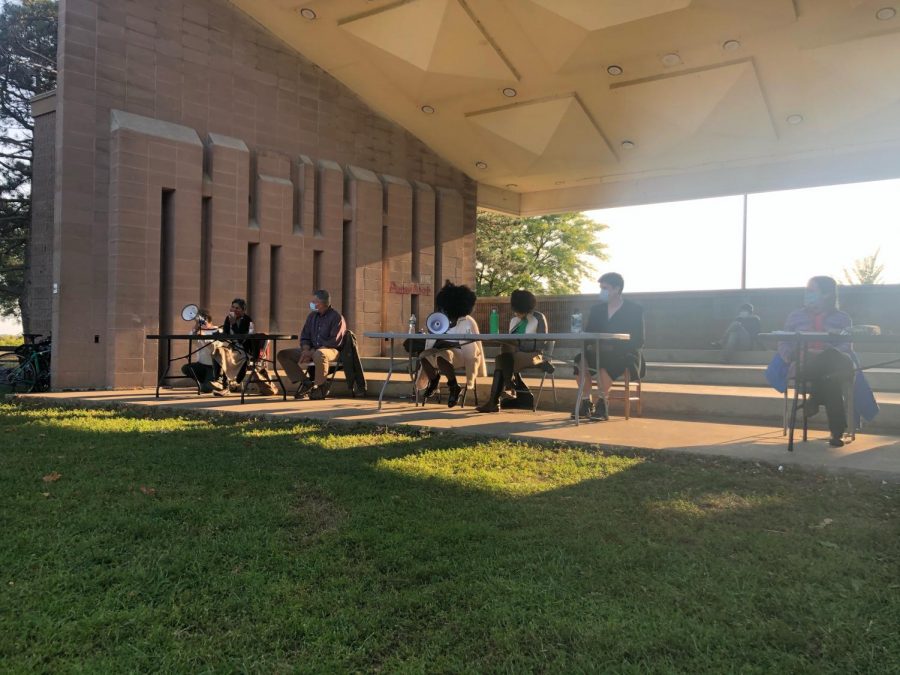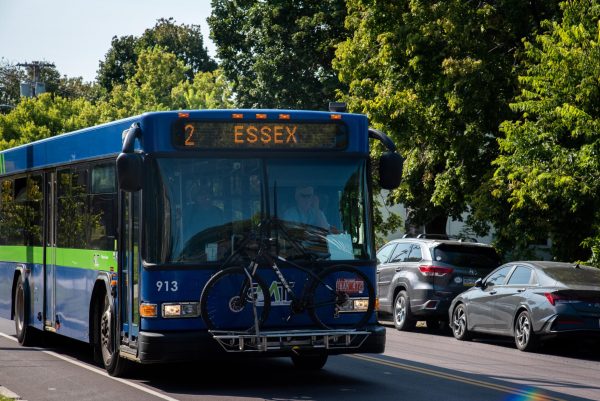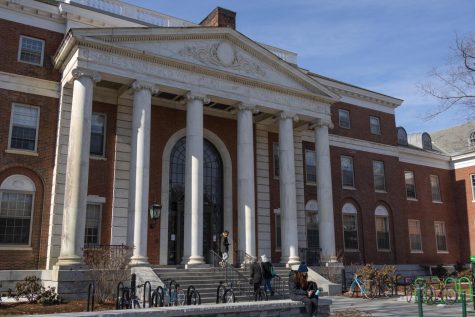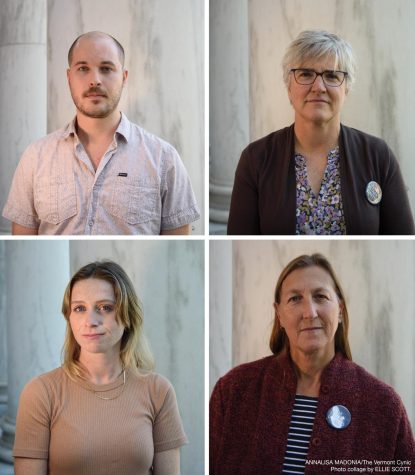Students and professors speak out about environmental racism in BTV panel
Panelists from the Burlington and UVM community discuss environmental racism at a Battery Park event Sept. 21.
As the afternoon sun beamed down on the tents for the 29th day of the Black Lives Matter encampment in Battery Park, organizers set up chairs to talk about environmental racism.
Organized by student activist groups The Black Perspective and Organize UVM, the Sept. 21 event attracted a group of roughly 75 people, mostly UVM students. The panelists included students, professors and community leaders.
Throughout the panel, the speakers pointed to a massive dissonance in our community: UVM prides itself on being a progressive champion of environmentalism, but it overwhelmingly attracts white students and faculty.
“I forget the fact that I’m constantly trying to fit into a community that truly does not accept me,” said panelist and UVM professor Bindu Pannikkar.
Trish O’Kane, panelist and UVM professor, said race discussions “need to be better integrated” in classrooms at UVM.
O’Kane encouraged students to hold their educators accountable for including race discussions in their lectures by holding private study groups and bringing their ideas to class.
Sarah Scioctino, organizer of Monday’s panel, thinks that white environmentalists aren’t doing enough to be intersectional.
“A lot of the environmentalists that I know … have just not been showing up as much as I had hoped,” said Scioctino.
Sciortino said conversations she has had in UVM environmental groups had been apathetic towards the Black Lives Matter protests, which she fears leads to the exclusion of students of color in these groups.
Chris Harrell, another passionate environmentalist, experienced the same issue in their circles.
“I’ve had conversations with environmentalists of color who really feel like they are just not welcome or invited to these white environmentalist spaces still,” Harrell said in an interview.
Alan Strong, a panelist who previously worked as the associate dean for the Rubenstein School at UVM, said that the administration has been “trying to have more conversations about race and equity and justice” for several years.
The biggest difficulty, Strong said, is making the college itself more diverse.
Professor Amy Seidl, assistant of UVM’s environmental studies program, said UVM lacks diversity because of systematic racism.
“UVM and its environmentalism is a product of a history that was exclusive, and that history was predominantly white and affluent and predominantly male. And that history lives with us today” said Seidl.
Seidl said she makes a point to include discussions on race in her environmental studies curriculum.
Many of the panelists shared ideas on how to stray from this oppressive history.
In her contributions to the panel, Pannikkar recounted times she experienced violence for her race during her research in Vermont, including one time when a man threatened to spit on her.
Echoing Pannikkar’s point, Burlington’s city councilor, Zoraya Hightower, spoke to the crowd about her experience of feeling excluded from the environmental movement.
She explained that her colleagues often expect her to limit her role to solely discussing race.
“It’s like if I’m an environmentalist, I must be an urban environmentalist because I’m black. If I’m an environmentalist, I must be an environmental justice environmentalist because I’m black,” Highwater said.











